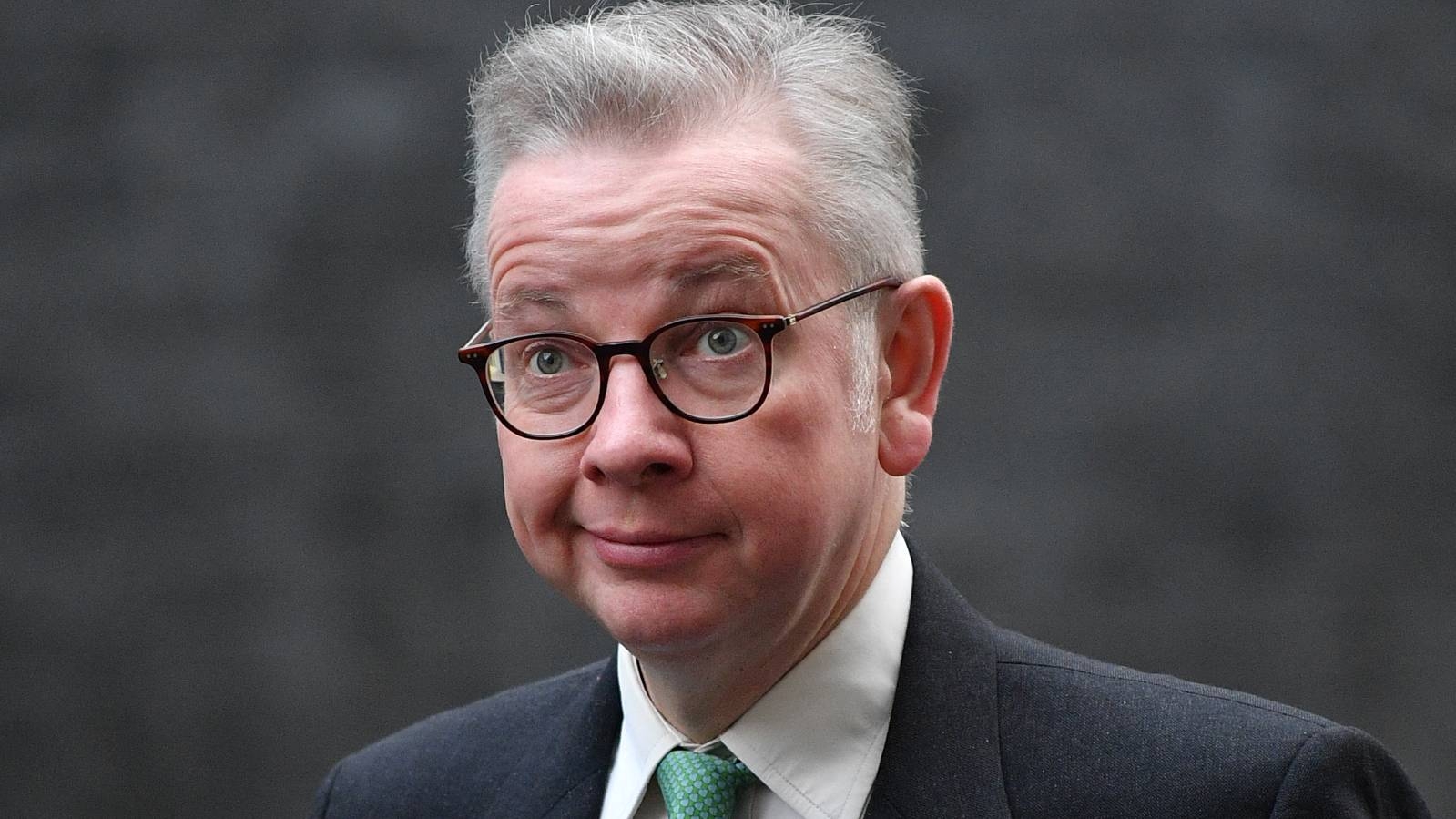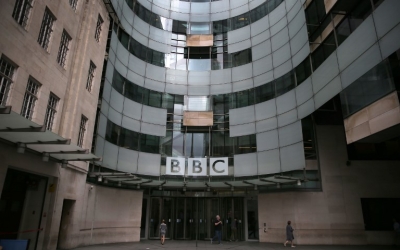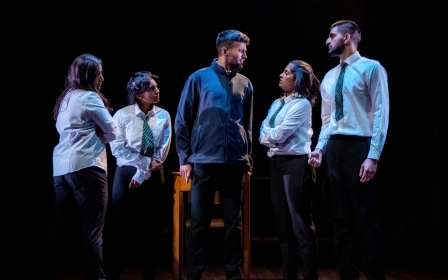Trojan Horse affair: We need the truth. Only the New York Times has tried to tell it

A few days before the 1924 general election in Britain, the Daily Mail splashed a world exclusive across its front page.
The Tory-backing paper claimed it had obtained a letter from Grigory Zinoviev, head of the Soviet Comintern, the international communist organisation, addressed to British communists about an alliance between Soviet Russia and Britain under the first Labour government.
New MEE newsletter: Jerusalem Dispatch
Sign up to get the latest insights and analysis on Israel-Palestine, alongside Turkey Unpacked and other MEE newsletters
Though Zinoviev issued a denial in the Communist Review two days before the elections, the Mail's claim was enough to drive middle England into the arms of Stanley Baldwin’s Conservative Party.
It took 70 years before we learnt the probable truth about the Zinoviev Letter. In 1998 Labour Foreign Secretary Robin Cook commissioned an official report from historian Gill Bennett. She concluded that it was probably forged by White Russians hostile to the Bolsheviks, then leaked to the press by way of the Conservative Party and the British Secret Intelligence Service.
Will it take 70 years till we learn the truth about another fake letter - the letter which launched the so-called Trojan Horse scandal?
The Trojan Horse episode was set in motion when an anonymous letter arrived at the office of Albert Bore, the leader of Birmingham City Council, in November 2013. The story led to several government investigations, the most important of which was carried out by Peter Clarke, former Metropolitan Police counter-terrorism chief, for the Department for Education.
Even though it is widely thought to be a hoax, Clarke did not attempt to confirm or refute its authenticity.
Official silence
If the British press has anything to do with it, the answer is yes. It’s taken foreign media in the shape of the New York Times to investigate what really happened. The eight-part NYT podcast is compulsive listening, and I’m not going to spoil the story by giving away its punchlines.
It may have taken 70 years to discover the truth about the Zinoviev letter. It mustn’t take 70 years for the British state - and British journalists - to report the truth about the Trojan Horse letter
But the podcast shows beyond reasonable doubt that the letter was a forgery, while exposing serious flaws in official reporting into the Trojan Horse affair.
Yet, it’s largely been ignored, rubbished or patronised by the British media. The same British media which was convulsed by a moral panic over the summer of 2014 about what, thanks to the New York Times, we can now see as a fabricated event.
Last night I approached Richard Kerbaj and Sian Griffiths, the two Sunday Times reporters who launched the story, and asked them if they would be revisiting their own reporting in the light of the New York Times revelations. No answer.
I approached reporter Andrew Gilligan, who wrote 12 news stories on the Trojan Horse affair mainly for the Sunday Telegraph, with the headlines to six of these stories referencing a "Trojan Horse Plot". When I asked Gilligan, who now works as an adviser to British Prime Minister Boris Johnson, whether he’d be revisiting his reporting, there was no answer.
I emailed Michael Gove and put to him The New York Times's claim that he initiated the Peter Clarke enquiry into the affair despite having been warned that the so-called "Trojan Horse" letter was forged. Again, no answer.
Last week Middle East Eye approached Clarke, the former counterterrorism chief who was commissioned by Michael Gove to write a report into the Trojan Horse affair, asking him for a response to the devastating commentary in the New York Times report that "he provides no clear sourcing or verification for the vast majority of his allegations. There are scant facts, or figures, or footnotes, or context".
We’ve received no reply.
For the most part a wall of official silence and/or denial has greeted the New York Times’ investigation.
'Bizarre and misleading'
The current education secretary, Nadhim Zahawi, did not answer when I asked whether he had any intention of looking again at the Trojan Horse affair in the light of the New York Times revelations.
In a brief statement, his department stood by the Peter Clarke report, saying that the former counter-terrorism chief "rightly focused on whether the events and behaviours that were alleged actually happened", claiming the "findings have subsequently been confirmed by a number of independent reports".
The department did not mention in its statement that the misconduct tribunal against the "Trojan Horse" teachers collapsed.
A different tone was struck by Birmingham Council whose own statement stressed that its own report "found no evidence to suggest an organised attempt to introduce extremist views to children in terms of radical extremism or anti-British sentiment".
In sharp contrast, Nick Timothy, special adviser to former British Prime Minister Theresa May, who was at the Home Office when the affair was at its height, launched a Twitter diatribe against the New York Times podcast.
Timothy, now a Daily Telegraph columnist, did not respond when I challenged him to explain why he regarded the New York Times account as "bizarre and misleading". I also asked whether he was aware that no charges of extremism were brought in the misconduct cases against the teachers. I asked him to explain. Again no reply.
The truth out
This is not good enough. Bear in mind that it is not only New York Times journalists who have exposed giant holes in the Trojan Horse story. So have respected academics John Holmwood and Therese O'Toole in their book, Countering Extremism in British Schools? The Truth about the Birmingham Trojan Horse Affair.
The British media and British politicians collaborated to attack a Muslim community in pursuit of a fictitious Trojan Horse letter
Like the New York Times, Holmwood and O'Toole dismantle Peter Clarke's report. They show that Clarke's findings were based on a misunderstanding of the law concerning religion in British schools.
There is actually no such thing as a secular school in England. By providing opportunities for their mainly Muslim pupils to practice their religion, the schools were merely performing their legal obligation.
Holmwood and O'Toole note Clarke's failure to mention that the school at the centre of his accusations, Park View - now renamed Rockwood Academy - did not take over and influence other schools because of an Islamist conspiracy. It did so at the suggestion of the Department for Education.
They discuss the climate of media coverage. In the months that followed the revelation of the Trojan Horse letter, the media – including the Daily Mail, for whom I wrote a column at the time - reported scores of stories of Muslim intolerance.
With few exceptions, journalists repeated what turned out to be unproven allegations while failing to address the underlying facts. Holmwood and O'Toole describe these reports as an instance of "moral panic ... where a scapegoating of marginalised groups in the context of a public anxiety is amplified by the press".
That’s why it’s wrong to brush aside or ignore the New York Times podcast. The British media and British politicians collaborated to attack a Muslim community in pursuit of a fictitious Trojan Horse letter, destroying the careers and in some cases wrecking the lives of many teachers in the process.
It may have taken 70 years to discover the truth about the Zinoviev letter. It mustn’t take 70 years for the British state - and British journalists - to report the truth about the Trojan Horse letter. And what a condemnation of the British media that only the New York Times has attempted to do so.
The views expressed in this article belong to the author and do not necessarily reflect the editorial policy of Middle East Eye.
Middle East Eye delivers independent and unrivalled coverage and analysis of the Middle East, North Africa and beyond. To learn more about republishing this content and the associated fees, please fill out this form. More about MEE can be found here.







